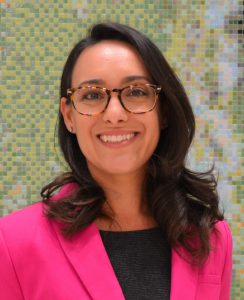 PI: Karina Gattamorta, PhD
PI: Karina Gattamorta, PhD
Primary Mentor: Daniel Santisteban, PhD
Title: Research Associate Professor, UM School of Nursing and Health Studies
Study Title: Feasibility and Acceptability of the Family Acceptance Project among Hispanic Families
Project Abstract. LGBT youth are at higher risk of negative health outcomes like increased rates of STIs/HIV, increased use of substances and alcohol, depressive symptoms, and suicidality. LGBT youth of color experience even poorer health outcomes particularly related to substance use, risky sexual behaviors, physical/sexual violence, and suicide. Among the factors that contribute to these health disparities are stigma, discrimination, rejection, and violence. Acceptance and support from families in particular is vital to the wellbeing of LGBT youth. There is a well-documented link between family rejection and adverse health outcomes such as suicide, substance use, risky sexual behavior, and homelessness. Hispanic families often experience higher rates of rejection compared to non-Hispanic families due to traditional cultural values such as conservative religious values, traditional gender roles, and the importance of familism all of which negatively impact their views on sexual orientation. The coming-out process is not only difficult for LGBT youth but it is also difficult for their families, yet few resources for Hispanic families of LGBT youth currently exist.
The Family Acceptance Project (FAP) helps ethnically and religiously diverse families to support their LGBT children in the context of their family, culture, and faith communities. The intervention, based on a family-support model, incorporates counseling strategies, assessment tools, parental education, skill building, and multicultural family education materials. FAP’s family support approach helps families adopt accepting behaviors empirically shown to promote well-being while reducing rejecting behaviors linked to negative health outcomes. Despite the promising history of FAP, it is difficult for this important work to achieve its full impact on the field because of the lack of manualization and specification of its key ingredients. Without a manual, it is difficult to train therapists, replicate, and interpret FAP outcomes. As a result, despite many providers being educated and trained in FAP, very little quantitative research on the outcomes of the intervention itself have been published.The purpose of this Center for Latino Health Research Opportunities-CLaRO pilot study is to use a mixed methods approach to examine the feasibility and acceptability of implementing core components of the Family Acceptance Project’s family support model in a diverse sample of Hispanic families living in South Florida. The goal is to pilot this intervention with approximately 20 families. The intervention will be delivered by the PI and a masters-level therapist. These preliminary findings will be used to support the application of a larger grant to study the effectiveness of FAP’s family support model for supporting Hispanic families of LGBT youth in South Florida to decrease rejection and health risks and to increase family acceptance and well-being.
